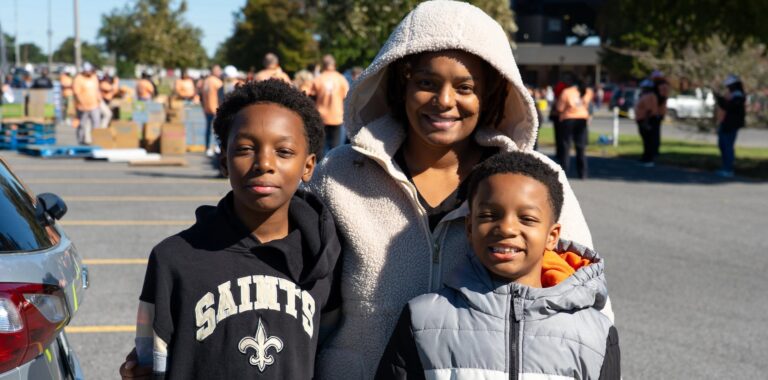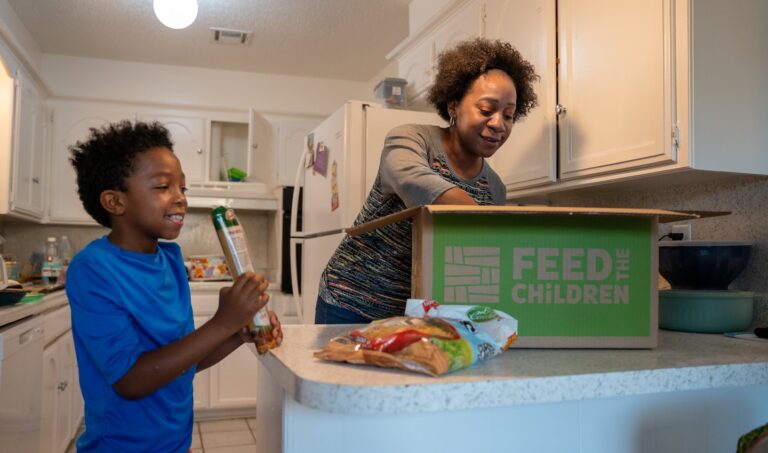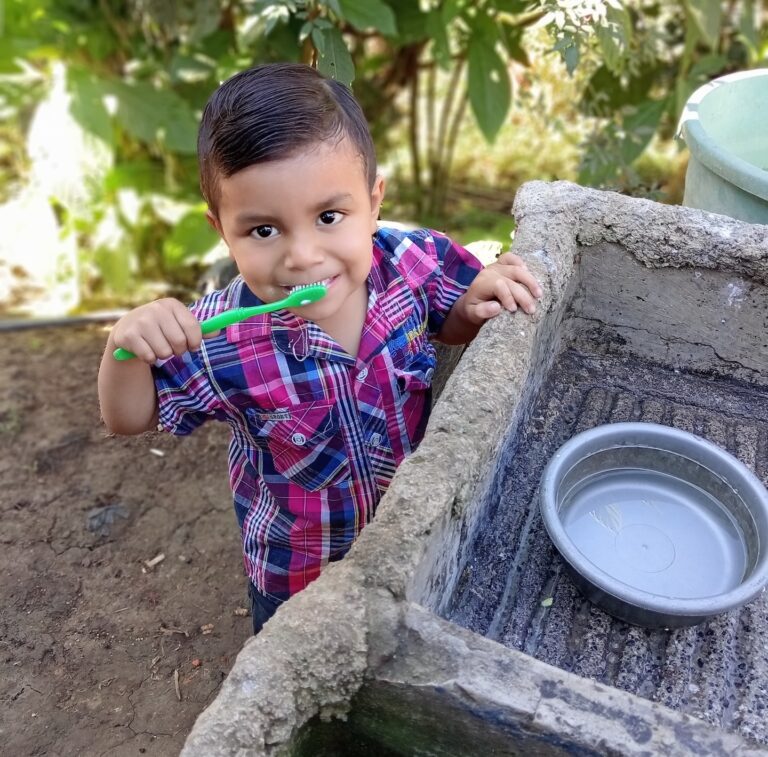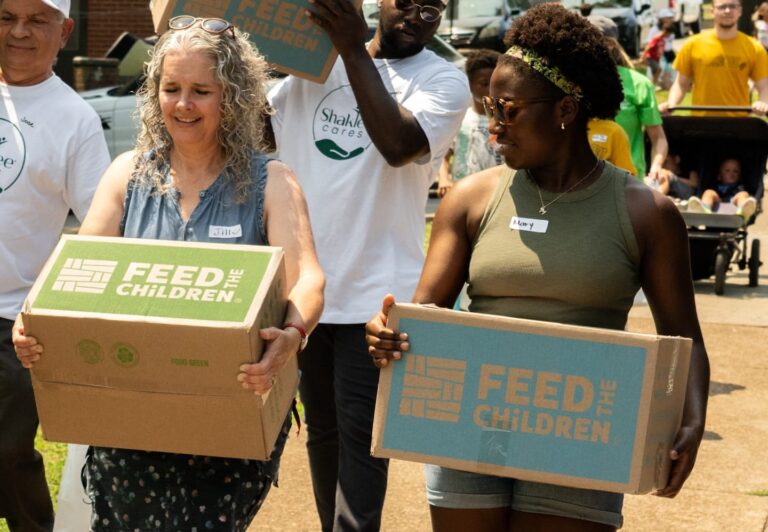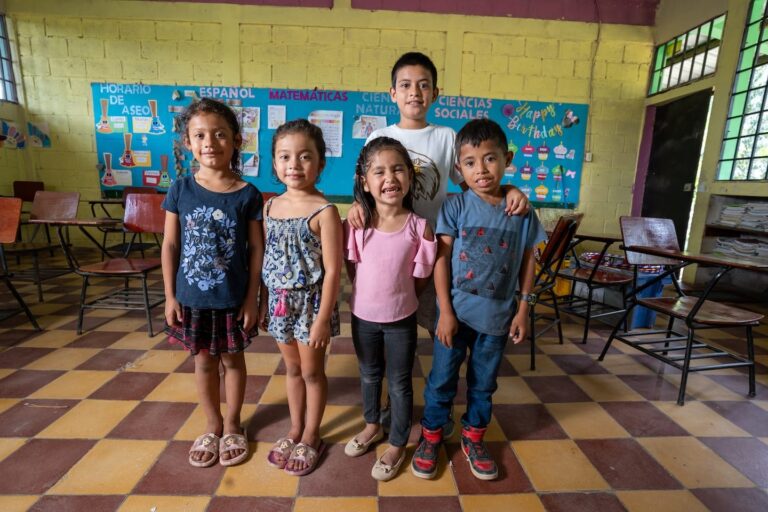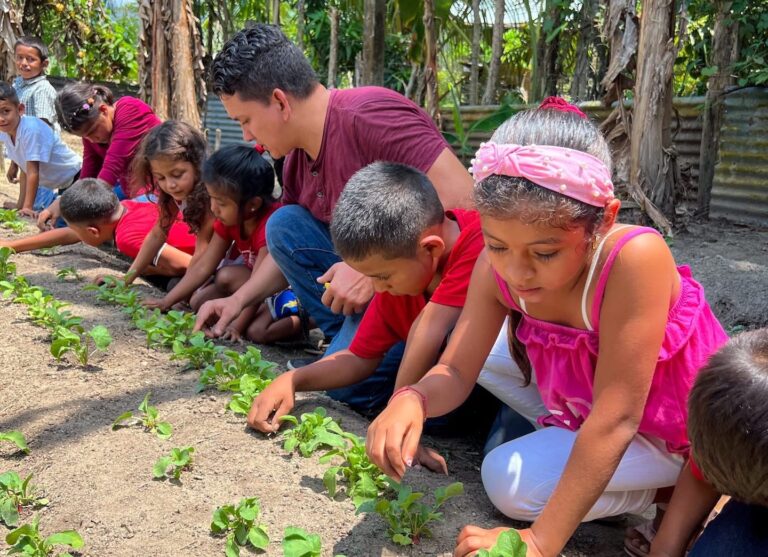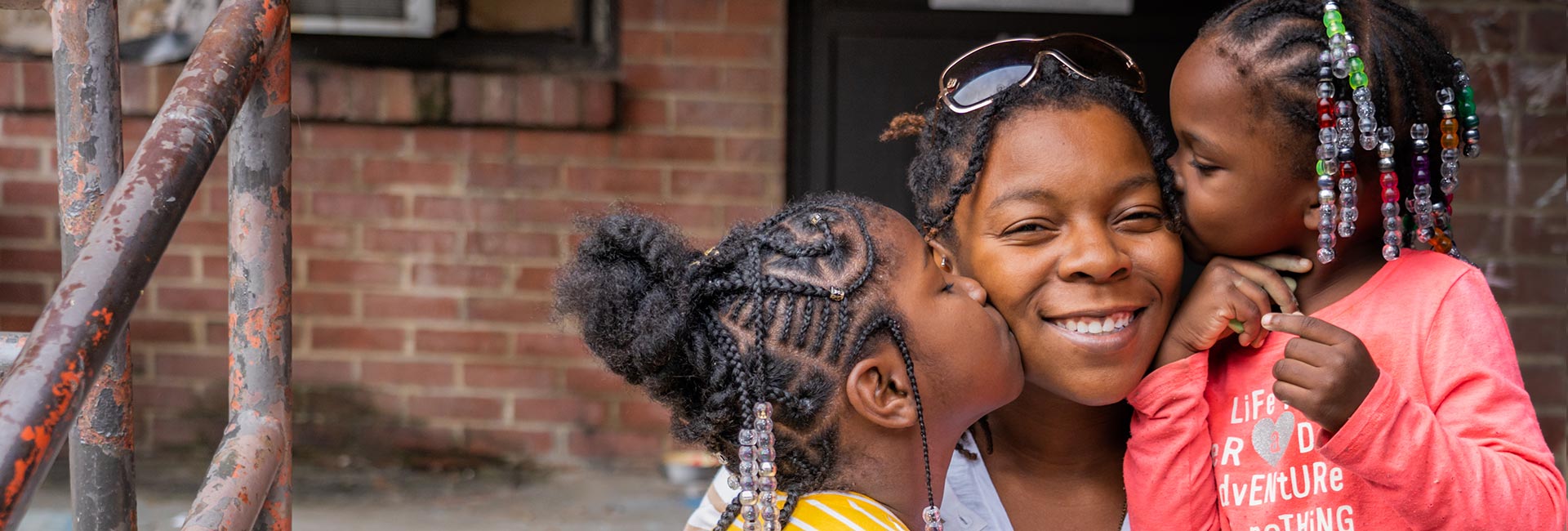
Kim’s Community
Have you ever had to choose between paying bills or buying food?
When we asked Nashville resident Kim that question, she laughed. “I pretty much do that every month.” She and her husband have two daughters, and while they receive food stamps, it doesn’t provide enough to feed the family. And food stamps can’t be used to buy household necessities like soap and shampoo.
The cost of living in Nashville is high. Gas prices have soared in recent years, and groceries have become more expensive. Gentrification has led to a boom in the construction sector, but not many people in Kim’s community have the skills to fill those jobs. Buildings are being renovated, rents are rising, and it’s getting harder and harder for people to stay on their feet.
For Kim’s family, it’s not just the struggle to afford food – it’s the struggle to maintain a healthy diet. Kim’s neighborhood is in a food desert. There are no major supermarkets, and the closest thing to a grocery store is the local Dollar General. Most residents in her area don’t have cars. For people without transportation, the only places to buy food are the dollar store or the gas station. This means that most people don’t have access to fresh produce, much less fresh meat and dairy.
People in Kim’s community suffer from diet-related health issues like high blood pressure, diabetes, and heart disease. Kim doesn’t want to see her kids grow up like that, but the inability to obtain nutritious food is a huge obstacle. She told us, “It’s really hurtful to me sometimes when it comes to trying to feed my family. Our basic health is really the main issue. If we had more fruits and vegetables, I’m sure I wouldn’t be as stressed.”
Kim worries about the long-term effects of food insecurity on her children. She grew up in a household that relied on government assistance and knows the stress and anxiety it can cause. In her words, “There is enough food to supply everyone in this world, yet small areas and low-income areas are the ones who are struggling to get these things. That’s really unfair to our families, and it really kind of puts an image in our children’s minds. It makes them grow up feeling a type of way.”
Kim likes to say that “love is actually just really caring for the next person.” She believes strongly in the value of humanitarian work. When she’s had extra food to give, she hasn’t hesitated to help people around her. And when her family needs help, organizations like Feed the Children make a difference. Because of the help and support Kim’s family receives, their cabinets are full, the house is clean, and her children can feel proud when they go to school. She told us, “I have to be thankful for that. They’re working hard to really, really try to help us, and I appreciate everything that they’re doing with that.”

